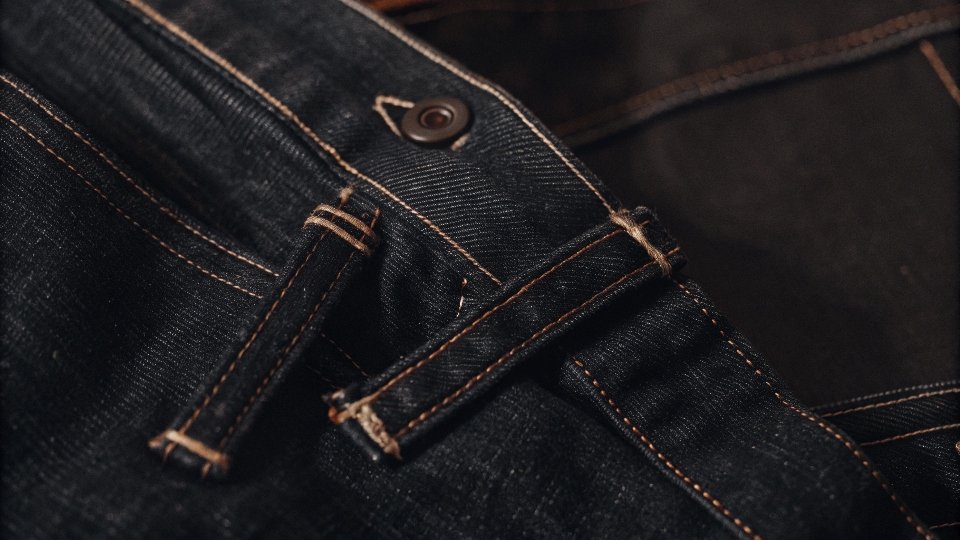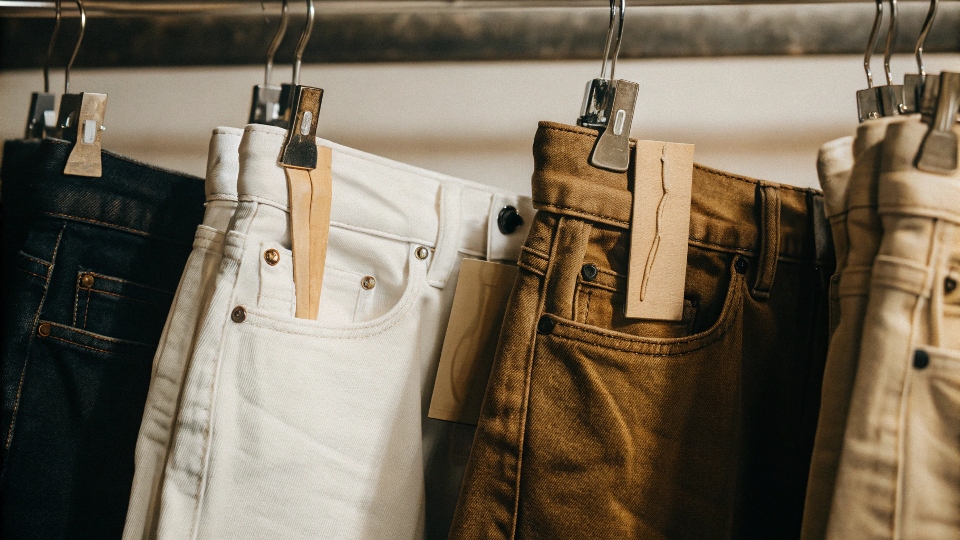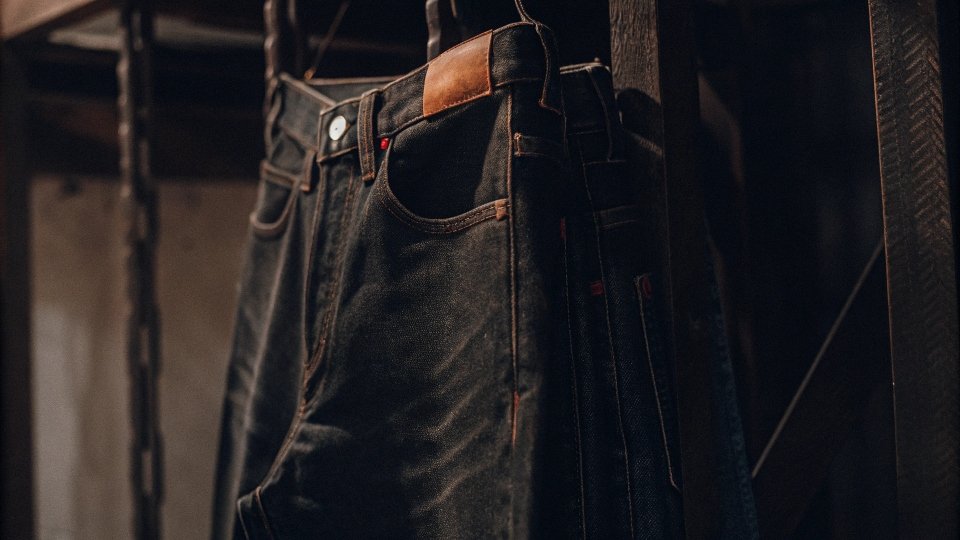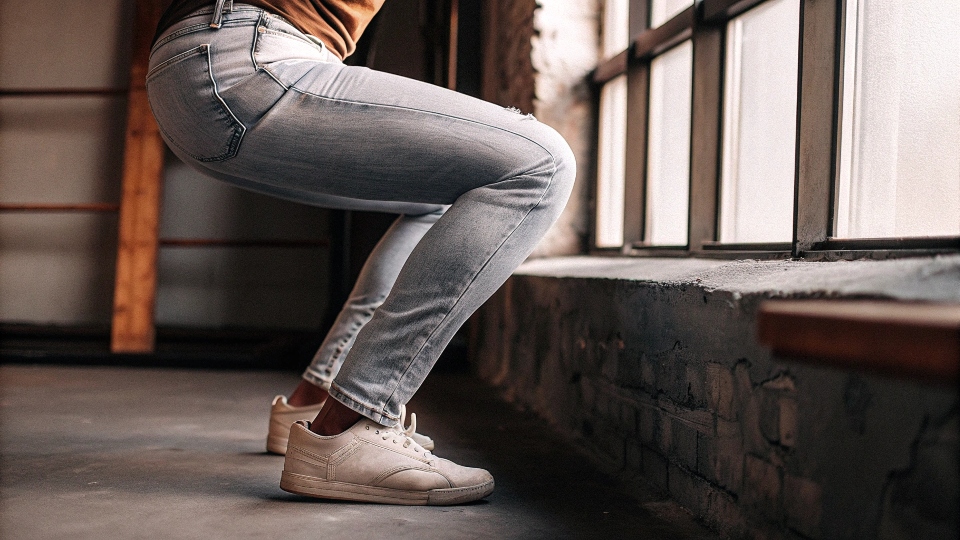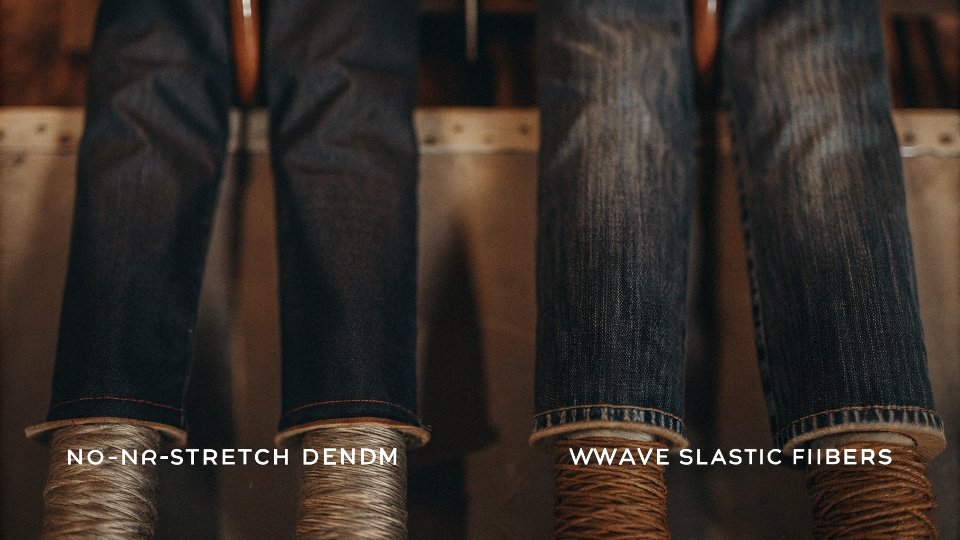You miss the feel of tough, substantial denim. But everywhere you look, jeans feel thin and act more like leggings. It seems impossible to find a pair that feels like the classic, sturdy jeans you remember.
Yes, many brands still make non-stretch jeans1 from 100% cotton. They are often marketed as "rigid" or "raw" denim. You just need to know which brands to look for and how to read the fabric composition label to find them.
Every day at my factory, DiZNEW, I work with huge rolls of denim. For the last decade, a growing number of those rolls have elastic fibers woven into them.
There's no denying that stretch denim2 is popular for its immediate comfort. But there is a powerful, lasting demand for the original. Nothing compares to the feeling of breaking in a pair of 100% cotton3 jeans and making them truly your own.
The good news is, you don't have to give up on that feeling. You just have to be a more careful shopper.
Does anyone make jeans that aren't stretch?
You're constantly searching for a classic pair of jeans. But every label you check lists spandex, elastane, or Lycra. It's frustrating to feel like the fabric you love has completely disappeared.
Absolutely. Many brands, from heritage icons to modern streetwear labels4, continue to produce 100% cotton jeans. You can find them if you look for keywords like "rigid," "non-stretch," or specifically check the material tag for "100% Cotton."
In my work, I partner with a wide range of designers, and I've seen a real commitment to traditional denim. Based on the brands I see succeeding in this space, there are plenty of options.
Labels like Makobi, Welldone, Denimtears, and Kodyphillips often use non-stretch denim to get a specific look and feel for their streetwear designs. It gives the garment a better structure.
Of course, classic brands like Levi's still hold true to their roots. This isn't a dead category; it's a premium one. These brands choose 100% cotton because they value authenticity and the unique way the fabric ages and fades over time.
It's a deliberate choice for customers who appreciate quality and history over instant gratification.
| Brand Type | Examples | Why They Use Non-Stretch Denim |
|---|---|---|
| Heritage Brands | Levi's, Wrangler | To maintain their iconic, original fits and uphold their history. |
| Streetwear Labels | Denimtears, Godspeed, Feature | For authentic aesthetics, better structure, and a vintage feel. |
| High-Fashion | Who Decides War, and others | To create specific silhouettes that require a stiff, substantial fabric. |
Does Levi's make jeans without stretch?
You think of Levi's as the original jean. But you're worried that even this iconic brand has completely switched over to stretch fabrics for modern comfort.
Yes, Levi's still makes many of their most famous fits in the original 100% cotton, non-stretch fabric. The key is to look for their iconic 501® Original Fit, which is the ultimate classic, or carefully check the material details on other models.
Levi's is the foundation of the entire denim industry, so this is a question I get a lot. They absolutely have not abandoned their history.
The Levi's 5015 is the most famous jean in the world, and its reputation was built on sturdy, 100% cotton denim.
The "Shrink-to-Fit™" 501s, which are designed to be bought raw and shrunk at home for a custom fit, are a perfect example of this tradition in action. This process only works with 100% cotton. Beyond the 501, Levi's also has a premium line called Levi's® Vintage Clothing (LVC).
This entire collection is dedicated to recreating historical Levi's products exactly as they were made decades ago, so nearly everything in the LVC line is non-stretch.
Levi's a huge company, they just have to cater to everyone. They offer stretch versions for comfort, but they will always serve the purists who want the original. Just be sure to read the fabric composition tag before you buy.
| Levi's Model | Typical Fabric | Best For |
|---|---|---|
| 501® Original | 100% Cotton | Traditionalists, custom break-in |
| 511™ Slim | Stretch Blends | Modern comfort, slim silhouette |
| LVC 1947 501® | 100% Cotton Selvedge | Denim enthusiasts, historical accuracy |
Why are all men's jeans stretching now?
You've noticed a massive trend in menswear. It seems like every single pair of jeans you pick up now has some degree of stretch to it. You wonder why this change happened so quickly.
The shift to stretch denim is driven by two main factors: the market's demand for immediate, out-of-the-box comfort and the massive popularity of slim and skinny-fit jeans. Stretch fabric makes these tight styles comfortable and wearable from the very first minute.
This change reflects a larger shift in consumer culture. From my perspective as a manufacturer, the demand for comfort is king. We live in an athleisure world where people are used to soft, flexible materials.
Stretch denim is the industry's response to making an old-school product feel new and accessible. Secondly, you can't ignore fashion trends. For the last 15 years, men's fashion has moved from loose, baggy styles to much slimmer silhouettes.
Trying to wear a pair of skin-tight, 100% cotton jeans is very restrictive. Adding just 1-2% elastane to the cotton blend allows the fabric to move with your body, making those slim fits possible without sacrificing mobility.
Finally, there's the break-in period. True rigid denim6 can feel stiff and uncomfortable for weeks.
Many modern shoppers don't have the patience for that; they want a product that feels perfect the moment they try it on. Stretch denim delivers that instant comfort.
What is a non-stretch jean?
You hear denim fans use terms like "rigid," "raw," and "100% cotton." You're not entirely sure what these mean or how they differ from the jeans you see everywhere else.
A non-stretch jean is a garment made from denim fabric that is 100% cotton. It contains zero synthetic elastic fibers like elastane or spandex. This makes the fabric feel stiffer, sturdier, and more substantial than its stretchy counterparts.
Let's break it down to the fiber level. At my factory, a standard denim weave has vertical threads (the warp, which is dyed indigo) and horizontal threads (the weft, which is usually white).
In non-stretch denim, both of these threads are made purely of cotton. To make stretch denim, we replace some of the cotton in the weft thread with a synthetic elastic fiber.
That's the only difference, but it changes everything about how the jeans feel and perform. Non-stretch jeans are defined by their unique aging process.
They don't stretch to fit you; you have to "break them in." Over weeks and months of wear, the thick cotton fabric softens and molds to your body, creating fades and creases that are a perfect map of your life. This personalization and durability is what denim purists love.
| Feature | Non-Stretch Denim (100% Cotton) | Stretch Denim (Cotton/Elastane Blend) |
|---|---|---|
| Initial Feel | Stiff, sturdy, substantial | Soft, flexible, lightweight |
| Fit | Molds to your body over time | Stretches to fit instantly |
| Break-in Period | Required (weeks to months) | None |
| Durability | Higher; cotton is very strong | Lower; elastic fibers can break down |
| Fades | High-contrast, sharp creases | Softer, less defined fades |
Conclusion
While stretch fabric is very common today, many brands still make authentic non-stretch jeans. Look for the "100% cotton" label to find that classic, durable pair that will last for years.
-
Learn about the advantages of non-stretch jeans and why they are favored by denim purists. ↩
-
Understand the reasons behind the popularity of stretch denim in modern fashion. ↩
-
Explore this link to discover brands that prioritize quality and authenticity in their denim. ↩
-
Discover streetwear brands that embrace non-stretch denim for unique styles. ↩
-
Explore the history and significance of Levi's 501 jeans in the denim industry. ↩
-
Find out what rigid denim is and how it differs from other types of denim for better shopping choices. ↩

